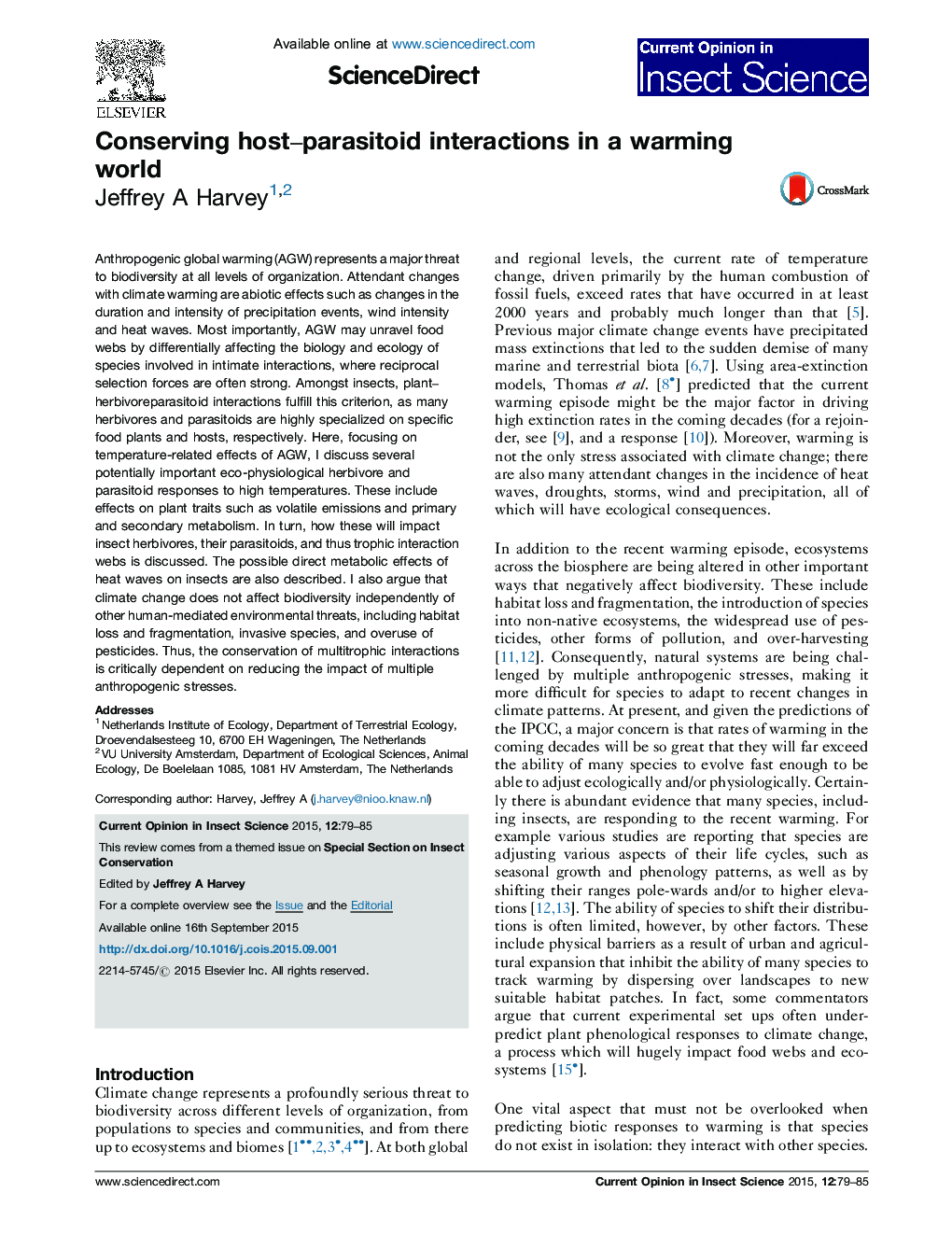| کد مقاله | کد نشریه | سال انتشار | مقاله انگلیسی | نسخه تمام متن |
|---|---|---|---|---|
| 6373968 | 1624378 | 2015 | 7 صفحه PDF | دانلود رایگان |
- Climate change will affect parasitoid-host interactions.
- Heat shocks mediate primary and secondary plant metabolism.
- Heat stress may also negatively affect insect performance and survival.
- Plants and insects must shift ranges to track warming climate.
- Conserving trophic interactions requires a multidisciplinary approach.
Anthropogenic global warming (AGW) represents a major threat to biodiversity at all levels of organization. Attendant changes with climate warming are abiotic effects such as changes in the duration and intensity of precipitation events, wind intensity and heat waves. Most importantly, AGW may unravel food webs by differentially affecting the biology and ecology of species involved in intimate interactions, where reciprocal selection forces are often strong. Amongst insects, plant-herbivoreparasitoid interactions fulfill this criterion, as many herbivores and parasitoids are highly specialized on specific food plants and hosts, respectively. Here, focusing on temperature-related effects of AGW, I discuss several potentially important eco-physiological herbivore and parasitoid responses to high temperatures. These include effects on plant traits such as volatile emissions and primary and secondary metabolism. In turn, how these will impact insect herbivores, their parasitoids, and thus trophic interaction webs is discussed. The possible direct metabolic effects of heat waves on insects are also described. I also argue that climate change does not affect biodiversity independently of other human-mediated environmental threats, including habitat loss and fragmentation, invasive species, and overuse of pesticides. Thus, the conservation of multitrophic interactions is critically dependent on reducing the impact of multiple anthropogenic stresses.
Journal: Current Opinion in Insect Science - Volume 12, December 2015, Pages 79-85
